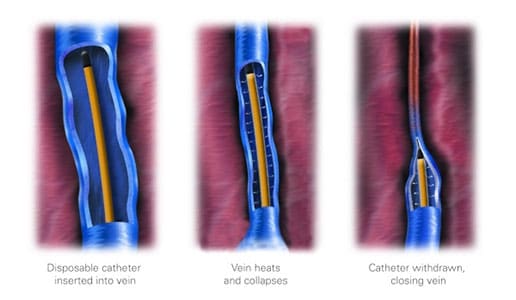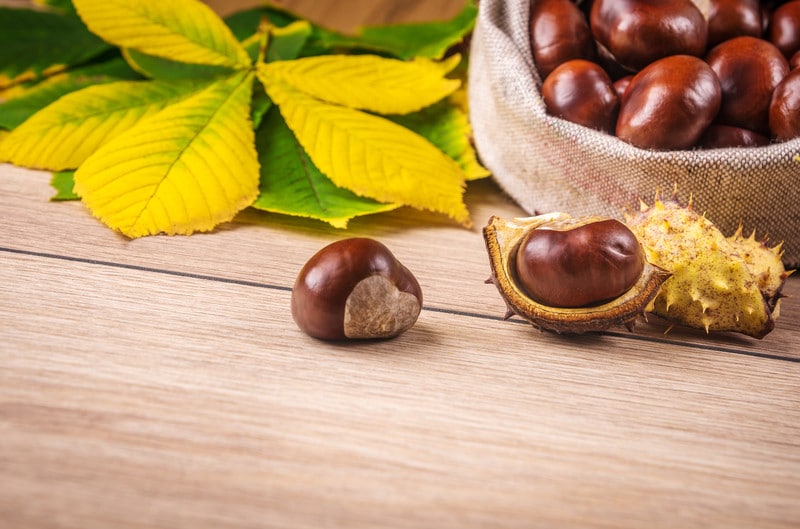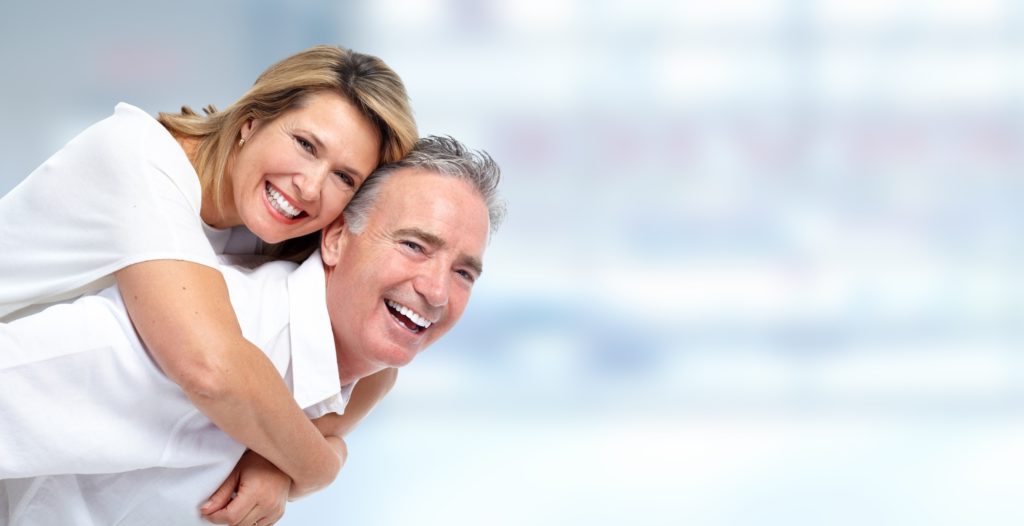RadioFrequency Ablation: How it works
Perhaps the most important thing to know about Radiofrequency Vein Ablation, is that it has a high success rate in treatment of varicose veins. Additionally, it is minimally invasive, minimally painful, has low rates of complication, can be performed in-office, and has a very rapid recovery time, usually about a day.
The Venous Ablation Process
 Introduced in 1999, radiofrequency vein ablation has helped to further revolutionize the management of superficial venous reflux disease, or Chronic Venous Insufficiency, and varicose veins. Using ultrasound to guide them, a vein specialists charged catheter delivers 350-500KHz of radio energy along the path of damaged veins. The affected veins close and are resorbed by the body, and blood flow is rerouted through healthy veins. Prior to operating the RF device, the adjacent tissues are surrounded by a tumescent solution, protecting the area and preventing the patient from feeling discomfort from the heat energy.
Introduced in 1999, radiofrequency vein ablation has helped to further revolutionize the management of superficial venous reflux disease, or Chronic Venous Insufficiency, and varicose veins. Using ultrasound to guide them, a vein specialists charged catheter delivers 350-500KHz of radio energy along the path of damaged veins. The affected veins close and are resorbed by the body, and blood flow is rerouted through healthy veins. Prior to operating the RF device, the adjacent tissues are surrounded by a tumescent solution, protecting the area and preventing the patient from feeling discomfort from the heat energy.
The procedure is very effective in the treatment of large vein varicosities including; the great saphenous vein, small saphenous vein, and perforator veins which link the superficial venous system to the deeper veins.
Learn More about RadioFrequency Vein Ablation
When performed by an experienced, qualified Vein Specialist, success rates for radiofrequency ablation exceed 97%. To see whether you can benefit from this advanced varicose vein treatment, book a consultation and exam with a qualified vein specialist.
References:
https://www.ncbi.nlm.nih.gov/pmc/articles/PMC3377553/: retrieved October 15, 2016
Although there is no cure for varicose veins and venous insufficiency, there are certain varicose vein home treatments you can to help relieve some of the symptoms of aching legs, swelling of legs, itchy legs, leg cramps and restless and heavy legs. Varicose Veins Homeopathic Treatment For those who prefer a homeopathic approach for managing…
Read MoreAre you worried about your varicose veins? A lot of people who have venous insufficiency or vein disease do not realize they have it or how straightforward it is to treat. Symptoms of venous insufficiency or vein disease are progressive and can start as early as your teens and twenties, but will only get worse…
Read MoreCan You Cure Varicose Veins? There are several conservative therapy and management of vein insufficiency options to help with the symptoms associated with varicose veins. None of these methods will prevent or fix the underlying problem. There is no cure for varicose veins or venous insufficiency, once a vein is abnormal (fails to return blood…
Read MoreWhat jobs contribute to getting or worsening varicose veins? When you are in the business of taking care of other people, sometimes you get so busy taking care of them that you forget to take care of yourself. People with active lives and active legs, like fire fighters, paramedics, nurses, police officers, teachers, flight attendants,…
Read MoreCauses of Varicose Veins During Pregnancy There are a number of reasons why women get varicose veins during pregnancy. First, the volume of blood circulating in the body increases to help support your growing baby. However, veins don’t have a way to accommodate the extra volume so sometimes the veins bulge, itch, are painful to…
Read MoreWhat is a Vein Specialist? When the venous system becomes incapable of doing its job effectively, that is when a vein specialist is at their best. A vein specialist is a medical provider whose main focus is the treatment and management of venous disease. Vascular medicine is composed of two different systems, arterial and venous.…
Read MoreCan I Use Essential Oils For Varicose Veins? Essential oils can help to temporarily alleviate symptoms associated with the underlying problem of varicose veins, but they do not prevent, treat, or cure venous disease itself.
Read MoreThere are several treatments available for painful varicose veins According to recent studies, 50 to 55 percent of women and 40 to 45 percent of men in the United States suffer from some type of vein problem. Varicose veins affect half of people 50 years and older, typically found on the thighs, inside the leg,…
Read MoreHigh Temperatures Will Irritate Varicose Veins As hot as it gets in Arizona, we can’t blame the sun for our varicose veins or spider veins as it is not the cause. However, our hot Arizona summers do cause diseased leg veins to get worse, as do hot tubs, heating packs, and prolonged hot baths. Warmer…
Read MoreDoes smoking cause varicose veins or spider veins? The noxious chemicals in cigarettes can do serious damage to your veins and arteries, whether you use tobacco products on a day-to-day basis or on occasion. The signs of damage from smoking often shows up in our vein center patients through the development of spider veins…
Read More


